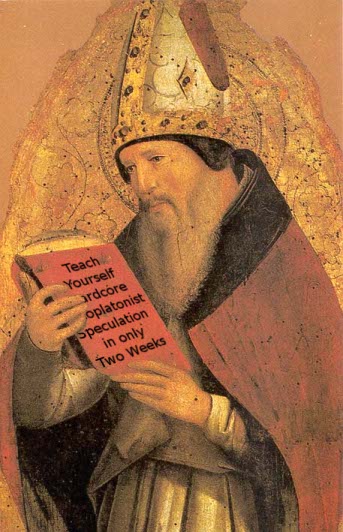
Blame a lot of MMM on this guy – the Hip’ster.
I feel some need to explain and justify what is going on here, as I have divided loyalties.
On the one hand, the stated purpose of the blog is to make recent research on trinitarian theories available to the wider public, in relatively brief, understandable, jargon free form.
On the other hand, this blog’s most faithful readers and commenters are specialists in medieval philosophy & theology, or in recent analytic philosophy of religion, and they can really get into dialogging in the way that PhDs (and to-be-PhDs) in these fields do – which is to say – highly abstract, jargon filled, argument-heavy discourse, that only a scholar can love. Being a scholar, of course, I love it, and have no desire to stem their exploration of historic trinitarian theories. They are all, in various ways, doing cutting edge work, and I learn a lot by listening in, and by joining in. And I know that other philosophy profs appreciate these discussions as well.
My solution? Have it both ways. 🙂 I just want to try to build a bridge for non-academic readers, to help them, maybe, be able to get something out of this recent Medieval Metaphysical Mayhem (MMM). So I’m going to try to give some relevant background information.
Here goes: all this medieval stuff assumes the inviolable authority of the standard formulas – so you may wish to review these.
Another seminal, authoritative source for these Latin speaking guys from the high middle ages, is that most influential Latin “church father”, Augustine of Hippo, pictured above (d. 430), author of the massive On the Trinity. While this book emphasizes our inability to understand God, the book is also famous for its several examples which later authors call his ‘psychological analogies’ of the Trinity. Augustine reasons that if we can’t catch intellectual sight of the Trinity directly, at least we can see reflections, images, or indications of the Trinity in the created realm, above all in the highest part of human beings (the mind), who are made “in the image and likeness of God”. In the human mind we may encounter several “trinities”, given here in the order that they somehow correspond to the Father, Son, and Holy Spirit: lover, loved object, the lover’s love for that object, the mind, its love, its knowledge, the mind’s remembering itself, understanding itself, and willing itself, memory, understanding, and will, and the mind’s remembering God, understanding God, and willing God. These are taken to be ‘images’ of the Trinity, with the final two being in some sense the most accurate.
Although he apparently considers the contemplation of these to be helpful in the pursuit of God, in the last section (Book 15) of De Trinitate, Augustine emphasizes that even these are “immeasurably inadequate” to represent God. The main reason is that these three are activities which a person does, whereas God “just is” his memory, understanding, and will; the doctrine of divine simplicity thus renders the mental analogies at best minimally informative. Further, temporal processes seem ill-suited to represent the nature of an essentially immutable God.
Words which are predicated ‘accidentally’ of creatures, such as good or wise, are predicated of God essentially. Applied to us, these words signify properties we happen to possess, and which we might have not possessed, but applied to God, they all indicate the same thing, God’s simple essence. What about terms such as “Father” and “Son”? As God can’t have accidental features, these can’t be predicated accidentally. But Augustine doesn’t want to say that they are essentially predicated either. He
suggests that they rather indicate relations, not between God and anything else, but between God and himself. He explores but ultimately rejects the idea that all true predication of God is relational. (Books V-VII) He finally holds that some terms apply equally to each of the three divine persons, whereas certain relational terms apply primarily to one of the three.
Hence, the origin of P, Fi, and Sp, discussed in the last couple of posts.
I never said this was going to be easy – only interesting. There’s more MMM to come.
Technorati Tags: Augustine, MMM, Latin Trinity, Latin trinitarian

I’m one of the non-academic readers that you’re wanting to reach. Thanks for this intial post on “Medieval Metaphysical Mayhem.” I’m looking forward to more.
Comments are closed.